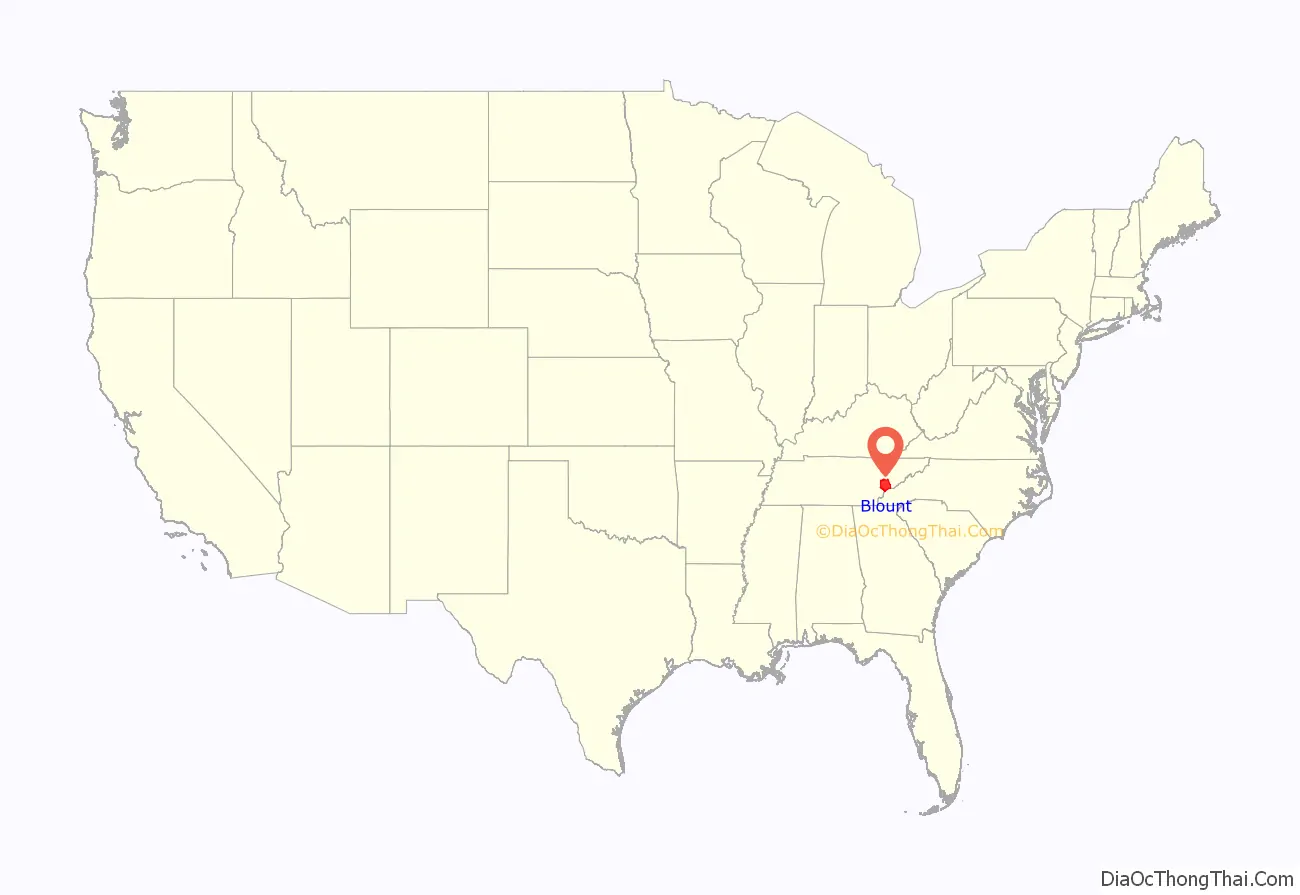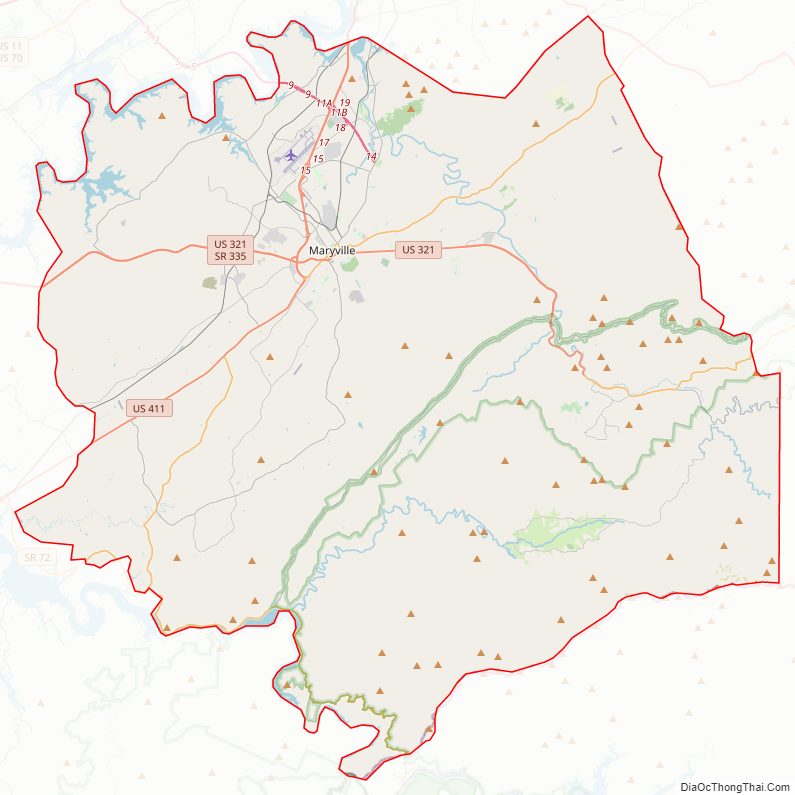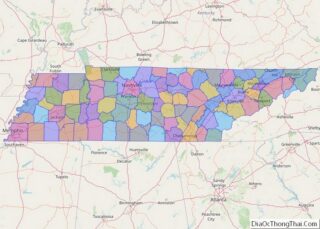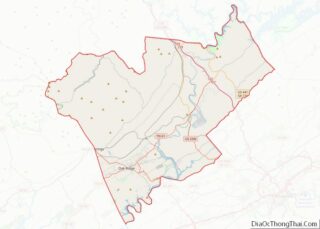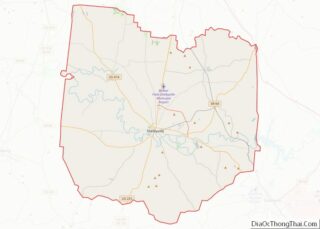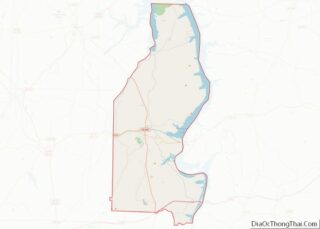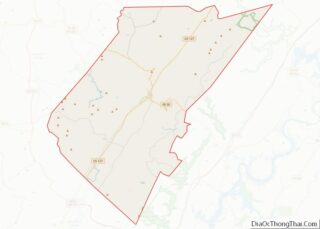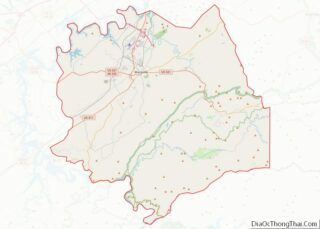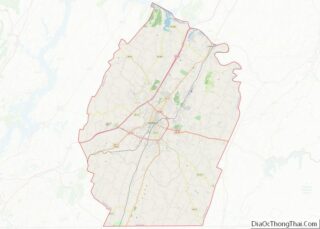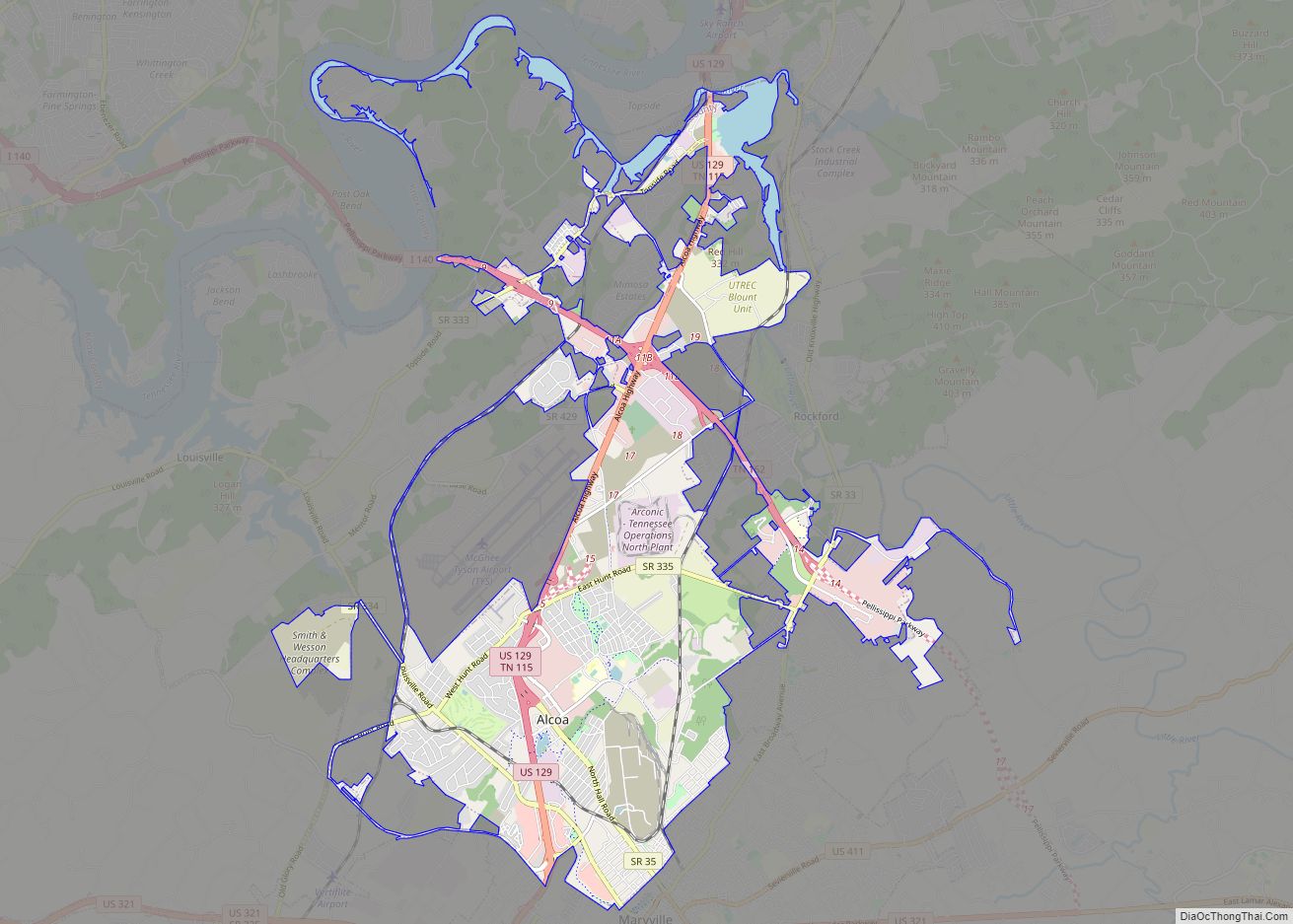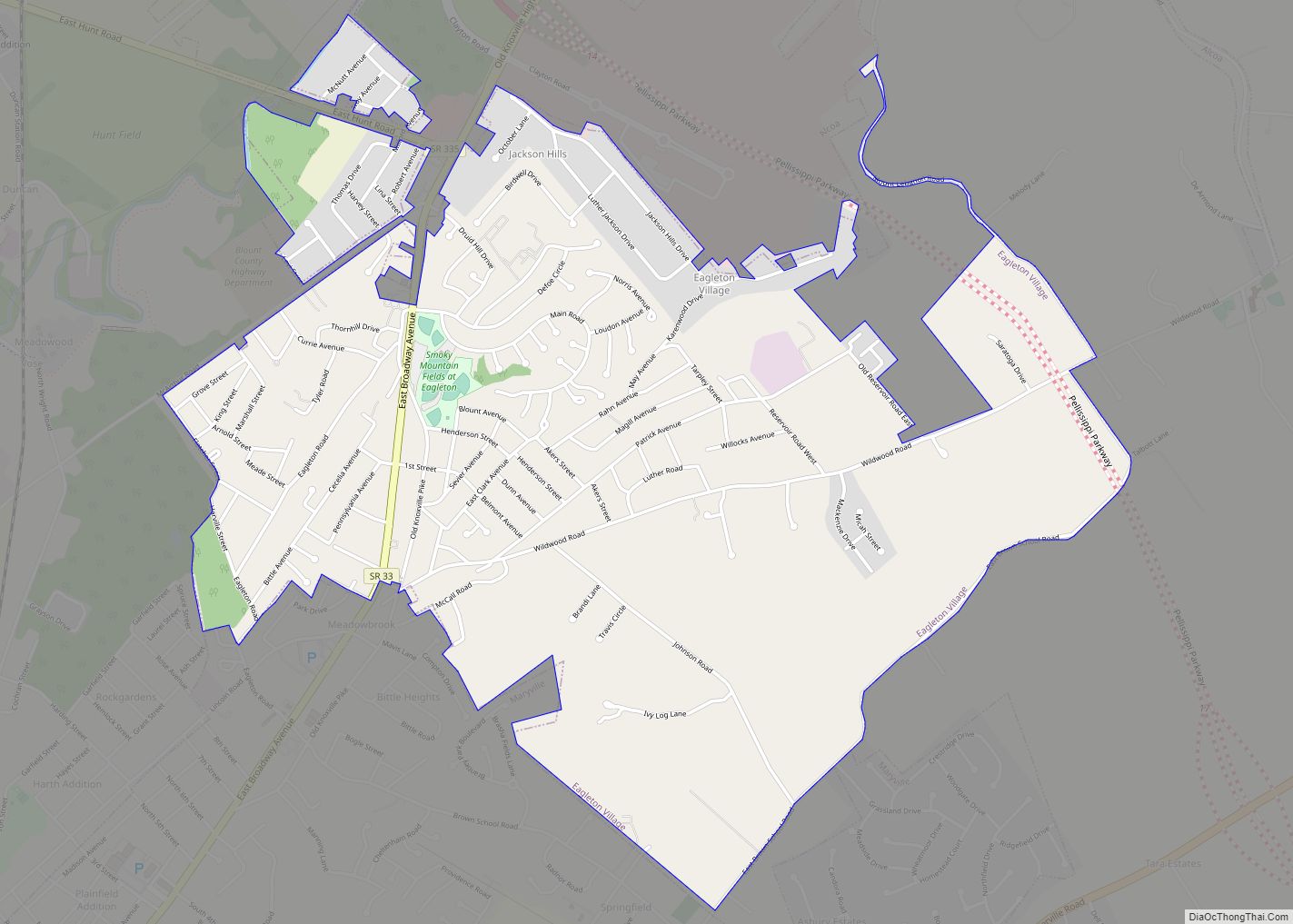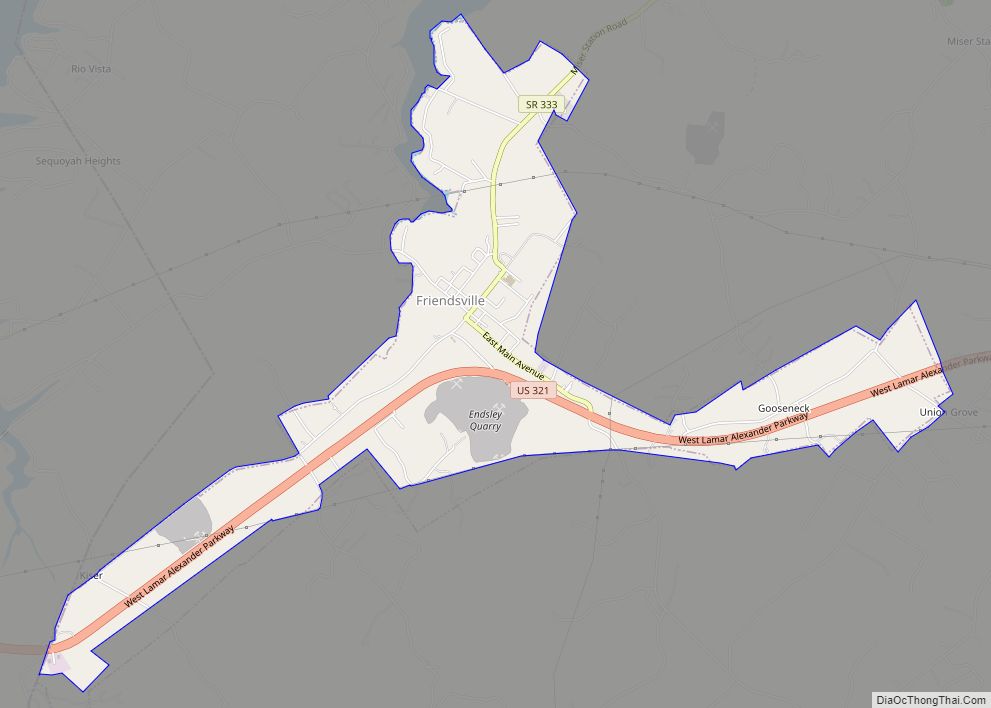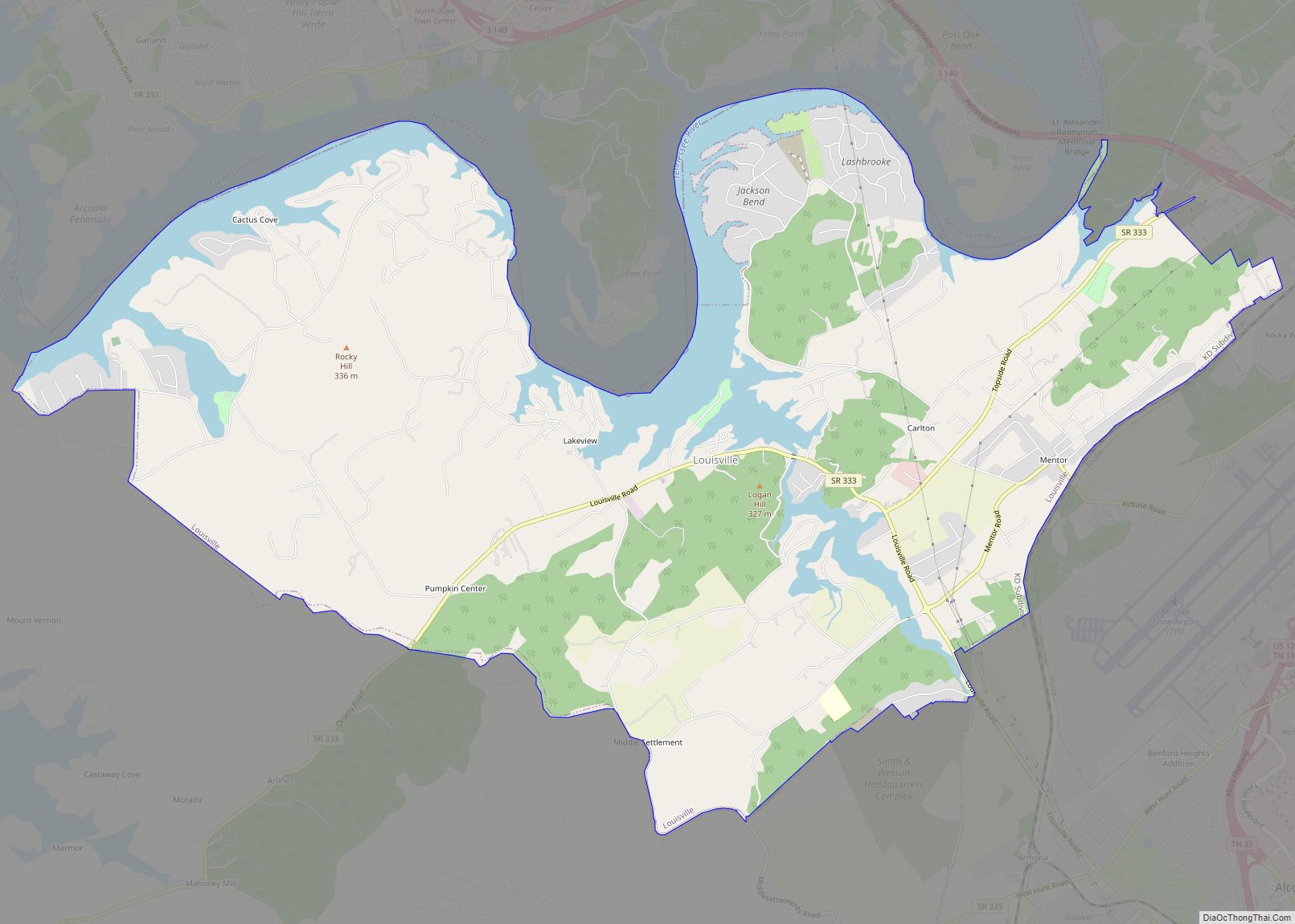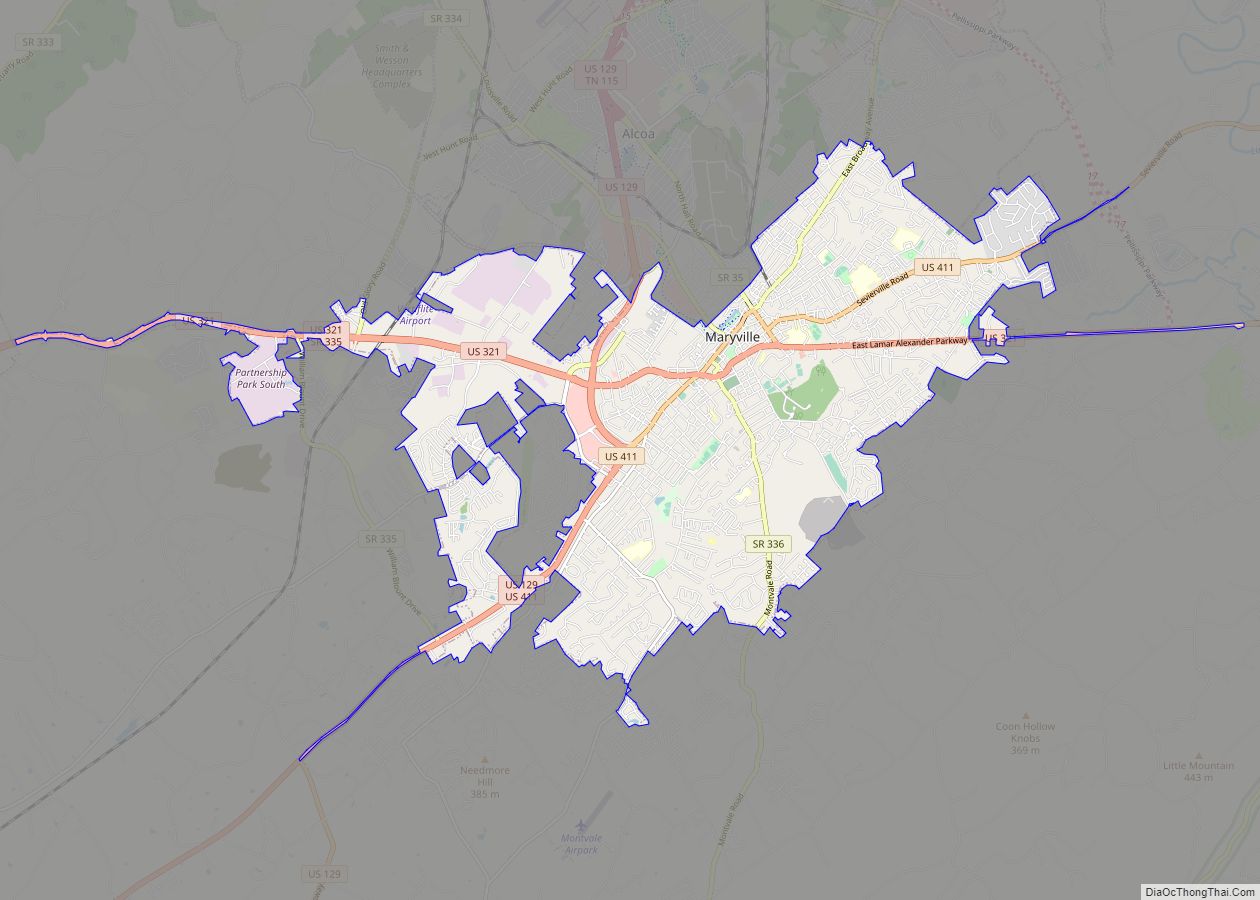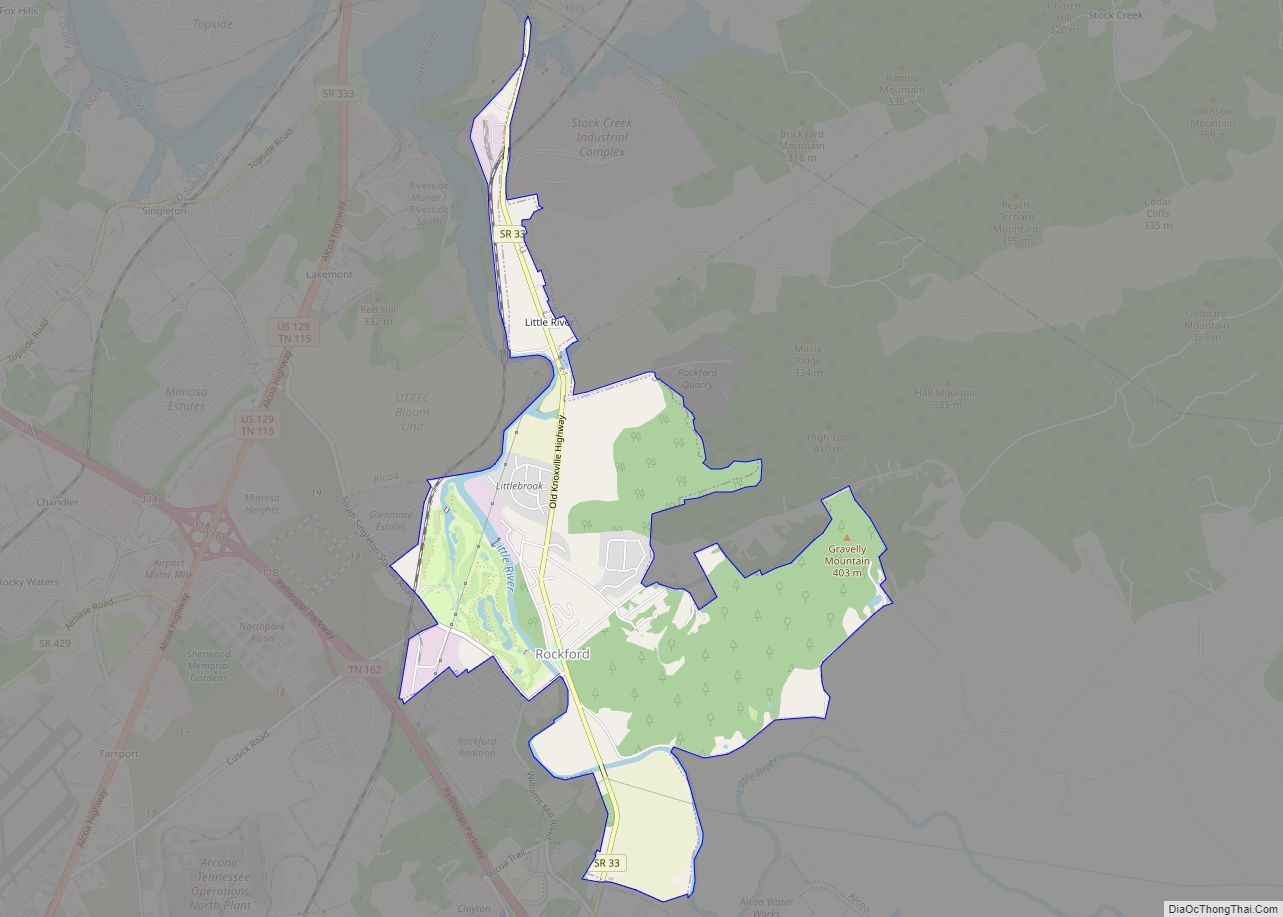Blount County is a county located in the East Tennessee Grand Division of the U.S. state of Tennessee. As of the 2020 census, its population was 135,280. The county seat is Maryville, which is also the county’s largest city. Blount County is included in the Knoxville, Tennessee metropolitan statistical area.
| Name: | Blount County |
|---|---|
| FIPS code: | 47-009 |
| State: | Tennessee |
| Founded: | 1795 |
| Named for: | William Blount |
| Seat: | Maryville |
| Largest city: | Maryville |
| Total Area: | 567 sq mi (1,470 km²) |
| Land Area: | 559 sq mi (1,450 km²) |
| Total Population: | 135,280 |
| Population Density: | 242/sq mi (93/km²) |
| Time zone: | UTC−5 (Eastern) |
| Summer Time Zone (DST): | UTC−4 (EDT) |
| Website: | www.blounttn.org |
Blount County location map. Where is Blount County?
History
What is today Blount County was for many thousands of years Indian territory, passed down to the Cherokee tribe that claimed the land upon the arrival of White settlers in the late 18th century. Shortly thereafter, on July 11, 1795, Blount County became the 10th county established in Tennessee, when the Territorial Legislature voted to split adjacent Knox and Jefferson Counties. The new county was named for the governor of the Southwest Territory, William Blount, and its county seat, Maryville, was named for his wife Mary Grainger Blount. This establishment, however, did little to settle the differences between White immigrants and Cherokee natives, which was, for the most part, not accomplished until an 1819 treaty.
Like a majority of East Tennessee counties, Blount County was opposed to secession on the eve of the Civil War. In Tennessee’s Ordinance of Secession referendum on June 8, 1861, Blount Countians voted against secession by a margin of 1,766 to 414. Residents of pro-Union Cades Cove and pro-Confederate Hazel Creek (on the other side of the mountains in North Carolina) regularly launched raids against one another during the war.
Throughout its history, the boundaries of Blount County have been altered numerous times, most notably in 1870, when a large swath of western Blount was split into Loudon and portions of other counties. Also, the establishment of the Great Smoky Mountains National Park in 1936, while not affecting the legal boundaries of Blount County, has significantly impacted the use of southeastern Blount County.
Blount County has been served by The Daily Times, currently published in Maryville, since 1883.
On July 2, 2015, a freight train carrying hazardous materials derailed. About 5,000 residents were displaced from their homes within a two-mile (three-kilometer) radius.
Blount County Road Map
Geography
According to the U.S. Census Bureau, the county has a total area of 567 square miles (1,470 km), of which 7.8 square miles (20 km) (1.4%) are covered by water.
The southern part of Blount County is part of the Great Smoky Mountains, and is protected by the Great Smoky Mountains National Park. The crest of the range forms the county’s border with Swain County, North Carolina, and includes Blount’s highest point, 5,527-foot (1,685 m) Thunderhead Mountain, and the 4,949-foot (1,508 m) Gregory Bald, a prominent grassy bald. The northern part of the county is part of the Ridge-and-Valley Appalachians. The geologic boundary between the Blue Ridge (which includes the Smokies) and Ridge-and-Valley provinces runs along Chilhowee Mountain, a long and narrow ridge that stretches across the central part of the county. Much of Blount’s topography is characterized by elongate ridges and rolling hills— known locally as “The Foothills”— which emanate outward from the Smokies range.
The mountainous southern portion of Blount County is dotted by relatively isolated valleys known as Appalachian coves. The best known of these valleys, Cades Cove, is one of the most visited sections of the national park, and is noted for the remnants of the Appalachian community that occupied the cove prior to the park’s formation, as well as an abundance of wildlife, especially white-tailed deer. Tuckaleechee Cove is occupied by the city of Townsend, and Millers Cove is occupied by the community of Walland. This part of the county is also home to two large caves: Tuckaleechee Caverns, a popular show cave, and Bull Cave, which at 924 feet (282 m), is the deepest in Tennessee.
The Tennessee River forms part of Blount’s border with Knox County to the northwest. This section of the Tennessee is part of Fort Loudoun Lake, an artificial lake created by the Tennessee Valley Authority. The Little Tennessee River, a tributary of the Tennessee, forms part of Blount’s southern border with Monroe County, and includes three artificial lakes: Tellico, Chilhowee, and Calderwood (two others, Cheoah and Fontana, are located just upstream in North Carolina). Little River, another tributary of the Tennessee, flows northward from deep within the Smokies and traverses the central part of the county. The river’s confluence with its Middle Prong forms a popular swimming area known as the “Townsend Wye”, which is located just inside the park south of Townsend.
Geographical features
- Great Smoky Mountains
- Chilhowee Mountain
- Thunderhead Mountain
- Gregory Bald
- Lake in the Sky
- Look Rock
- Fort Loudoun Lake
- Chilhowee Lake
- Little River
- Little Tennessee River
Adjacent counties
- Knox County, Tennessee – north
- Sevier County, Tennessee – east
- Swain County, North Carolina – southeast
- Graham County, North Carolina – south
- Monroe County, Tennessee – southwest
- Loudon County, Tennessee – west
National protected areas
- Appalachian Trail (part)
- Foothills Parkway (part)
- Great Smoky Mountains National Park (part)
State protected areas
- Foothills Wildlife Management Area
- Sam Houston Schoolhouse (state historic site)
- Kyker Bottoms Refuge
- Tellico Lake Wildlife Management Area (part)
- Whites Mill Refuge
